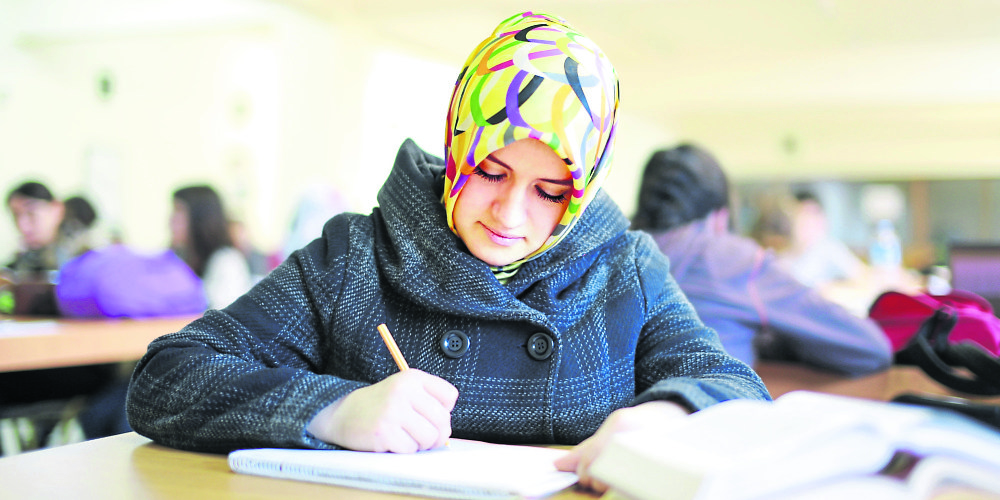
(Photo: Zgrpro/CC)
Ala Abbas
A report by the Government’s Social Mobility Commission found that despite high educational achievement, ethnic minorities, in particular, Muslim women, were not reaping the rewards of their hard work at school.
The report, published on December 28, was underpinned by a wide-ranging academic study and found discrimination against gender and ethnic minority groups in the labour market to be one of the factors behind their lower than expected success at work.
“Returns on education in the form of earnings are relatively low for all ethnic minority groups, and especially so for British-Bangladeshi, Pakistani and Muslim Black African women” according to the report.
The report pointed out that there was “an increase in educational attainment for Pakistani/Bangladeshi pupils” and an improvement in performance “at a more rapid rate than other ethnic groups in recent years at almost every key stage of education. Almost half of Bangladeshi and over a third of Pakistani young people from the poorest quintile go to university”. But according to the report, “This is not yet reflected in labour market outcomes, particularly for women, where British Bangladeshi and Pakistani women earn less than their counterparts from other ethnic minority groups.”
While the affluence gap in the white population can be explained by a difference in educational attainment, the lack of social mobility among the BME population is less understandable. The commission’s Chair, Alan Milburn, said that it was concerning that people who were doing well at school were still missing out in the workplace. He called for urgent action to break down barriers: “The British social mobility promise is that hard work will be rewarded. This research suggests that promise is being broken for too many people in our society.”
The report noted that: “Young people from Pakistani and Bangladeshi backgrounds are more likely than ever to succeed in education and go on to university, girls even more so than boys. Yet these outcomes are not yet being translated into labour market returns – with unemployment particularly prevalent amongst Bangladeshi women, and both Pakistani men and women are relatively unlikely to secure managerial or professional occupations.”
The report looked into how discrimination can hamper social mobility and found “discrimination in the workplace puts some groups, in particular, Muslim women, at a disadvantage”. Evidence of direct discrimination was cited through studies that highlighted “the greater degree of discrimination experienced by Muslim women, particularly those who display outward symbols of their religion, such as the hijab”.
Indirect discrimination in the form of lower teacher expectation was also cited as a reason for why black boys were falling behind at secondary school.
As a report that is chiefly concerned with social mobility rather than discrimination, it concentrated on the low attainment of white working class groups at school. The researchers suggested that family behaviour was one factor in explaining the trend, citing evidence that white working class parents “tend to be less engaged in their children’s education than other ethnic groups”.
The home environment and cultural norms were also used to explain why Muslim women are behind their male counterparts in the workplace, putting this down to different expectations of gender roles.
When it came to rectifying the striking inequalities faced by Muslim women, the report recommended that “schools, universities and employers should provide carefully targeted support to ensure Muslim women are able to achieve their career ambitions and progress in the workplace.”
“Britain is a long way from having a level playing field of opportunity for all, regardless of gender, ethnicity or background,” said Milburn.
Social Mobility Commission – Ethnicity, gender and social mobility FULL REPORT CLICK HERE